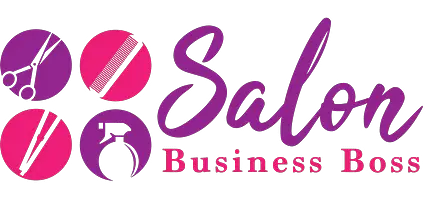Whether it’s creating a business plan, sorting out your business finances, or finding your salon insurance, making your business decisions to open your dream hair salon can be discouraging—but they don’t have to be, as long as you know what your options are. When you’re just starting out, it may be hard to sort out what your business structure should be. What is the difference between the options, and how do you decide?
How can I determine the best business structure for my hair salon?
When choosing your business structure for your hair salon, you need to decide how you want to pay your taxes, how much control you want over your business, and how much liability you want to have with your business. Possible business structures include:
- Sole Proprietorship: you have complete control over business decisions, but have complete liability and only pay personal taxes
- Partnership: You and your partner have complete control over business decisions and have no board or shareholders. limited liability if you are a limited partner, and must pay personal taxes
- Limited Liability Company: you protect your assets from liability and must pay self-employment and personal taxes
But what are the benefits and disadvantages to each business type? How do you choose which is best for you? What are other hair salons doing for their business structure? Read on to find out more.
Why is it important to choose?
While there are several structural choices you can make, it is important for you to choose because according to the U.S. Small Business Administration, it can affect everything from how you pay taxes to your day-to-day operations.
Because it affects your taxes, you need to make this decision before you start your business—if you don’t, you could be facing issues with the Internal Revenue Service by not organizing your taxes correctly.
Each business structure has varying liability. This is important to consider as you are working directly with the public in your hair salon—determine what you want your personal liability to be before you make a decision on your business structure.
Types of Business Structures for Your Hair Salon
1. Sole Proprietorship

This business structure gives you complete control over everything that happens in your business. If you do not register as another type of business, you are automatically considered a sole proprietor, so if this is the way you want to go, you don’t have to do anything but set up your business.
There are pros and cons to this type of business structure. For one, your business funds, including your liabilities, are not separate from your own personal accounts. This can cause issues, meaning you would be held personally liable for all debts and obligations, according to the U.S. Small Business Administration. With sole proprietorship, you also cannot sell stock, and it will be hard for you to get loan options from banks.
When creating a sole proprietorship, if you choose this business structure, you should consider registering your business under a “doing business as” with your state.
Pros: Complete control, low-risk, great for those starting out
Cons: hard to get loans, business and personal funds are all together in one account, inability to sell stocks, completely liable for everything, personal taxes only
2. Partnership
Much like the sole proprietorship, the partnership structure simply means that two or more people are owning the same business together. You have two options if you’re going into business with someone else—a limited partnership or a limited liability partnership.
For limited partnership, one partner has unlimited liability, while the others have limited liability. That means that one person has more control over the business than those with limited liability, and it should be outlined in some sort of formal agreement. In this case, all funds are passed through the unlimited, or general, partner’s accounts, and they will have to pay self-employment taxes.
For a limited liability partnership, on the other hand, all partners have equal limited liability, meaning that each partner is not liable for the actions of their other partners.
Pros: complete control with partners, low-risk, great for those starting out
Cons: no business accounts, must work with other partners on all business decisions, must pay personal and self-employment taxes unless a limited partner
3. Limited Liability Company
Many in the business world know what a limited liability company—or LLC—is. Your personal assets are separate from your business assets through an LLC, even thought your funds are passed through your personal income. You are still considered self-employed, though, and have to pay self-employment tax as an LLC.
LLCs can be structured through one or more people, leaving it a great option for both partnerships and sole proprietors if they wish to protect their assets. In some locations, you may have to dissolve and recreate an LLC if membership changes, unless terminology allowing for such changes are included in your LLC agreement. LLCs are great for businesses looking to make more steps to grow and prosper, or if you’re looking to protect your personal assets.
Creating an LLC also gives you additional financing options, as it is easier to get loans and funding when functioning under this business structure.
Pros: Complete control while protecting your personal assets from liability, great for medium or higher-risk businesses
Cons: must pay self-employment taxes and personal or corporate taxes, may have to change the agreement based on membership
Want to learn more about the different types of hair salons?
4. Other Structures

There are other options out there for you, including the corporation, or C corp, and the S corporation, or an S corp. In both cases, these are separate entities from their owners. Why aren’t these higher on the list? Simply because they are more applicable for larger businesses. These corporations are often taxed twice—on their profits and then when shareholders are paid. While they are great for limiting personal liability, you also have to keep extensive records.
In most cases, they also have special limits and eligibilities to become one of these corporations. For example, a S corp requires you to have no more than 100 people and all of them must be U.S. citizens to be considered in this business structure. The C corp goes through corporate tax, while the S corp goes through personal tax.
Because of the strict rules and necessary information—along with frequently requiring a board of directors to run the corporation—these are not good options for your hair salon business. Stick with the limited liability company, sole proprietorship, or partnership in your small business.
How to Choose Your Business Structure
The majority of hair salons in the industry right now are limited liability corporations. Because of the benefits of limiting your liability, separating your assets, and allowing for tax flexibility, you can better grow and thrive in your business without worrying about how it affects your personal taxes.
The other most common business structures for your hair salon leave you and possibly your partners open and liable, leaving all your assets open in case of a lawsuit. You will also have better tax flexibility, which means you have options on how you want to pay your taxes, whether you want to leave your excess funds within your business to pay taxes separately, or shift those funds into your personal account and pay on taxes that way.
In comparison to the other choices, sole proprietorship and partnerships are great if you are starting out and just want to get your feet on the ground. While they do leave you open and liable, they are also extremely flexible and easy to manage for most business owners.
Next Steps
Once you’ve chosen your business structure, you will need to register your business within your state. You can also start considering all the licenses you will need before you start your hair salon, including your tax identification number. While all states are different, you can find additional information through your state taxation website.
When it comes down to your business structure for your hair salon, you have to choose what’s best for you. The main considerations are how you pay your taxes, whether you, your partners, or your business is liable; and who makes the decisions on your business. Whatever you decide, make sure you are positive, as it will be hard to change it once you’re set up your business.
Related Questions

What licenses do I need to start a hair salon?
To start your hair salon, you will need a state cosmetology or beautician’s license or a salon manager license, a vendor licenses, a business operation license, a federal employer identification number, and a certificate of occupancy. In most cases, you can find more information about where to find these applications on your state board of taxation or revenue board website.
How much can you make owning your own hair salon?
A salon owner can make an average of $75,000 per year. An average salon can make an annual revenue of about $245,000. After taking out expenses such as marketing, supplies, your owner’s salary, rent, and building upkeep, that hair salon will make a total profit of about $19,000 per year.
Looking to start your own Salon? Get the documents you need to get organized and funded here.
Please note: This blog post is for educational purposes only and does not constitute legal advice. Please consult a legal expert to address your specific needs.

About the author. Entrepreneur and Salon Business Fan.
Hi! I am Shawn and I am a happy individual who happens to be an entrepreneur. I have owned several types of businesses in my life from a coffee shop to an import and export business to an online review business plus a few more and now I create online salon business resources for those interested in starting new ventures. It’s demanding work but I love it. I do it for those passionate about their business and their goals. That’s why when I meet a salon business owner, I see myself. I know how hard the struggle is to retain clients, find good employees and keep the business growing all while trying to stay competitive.
That’s why I created Salon Business Boss: I want to help salon business owners like you build a thriving business that brings you endless joy and supports your ideal lifestyle.

